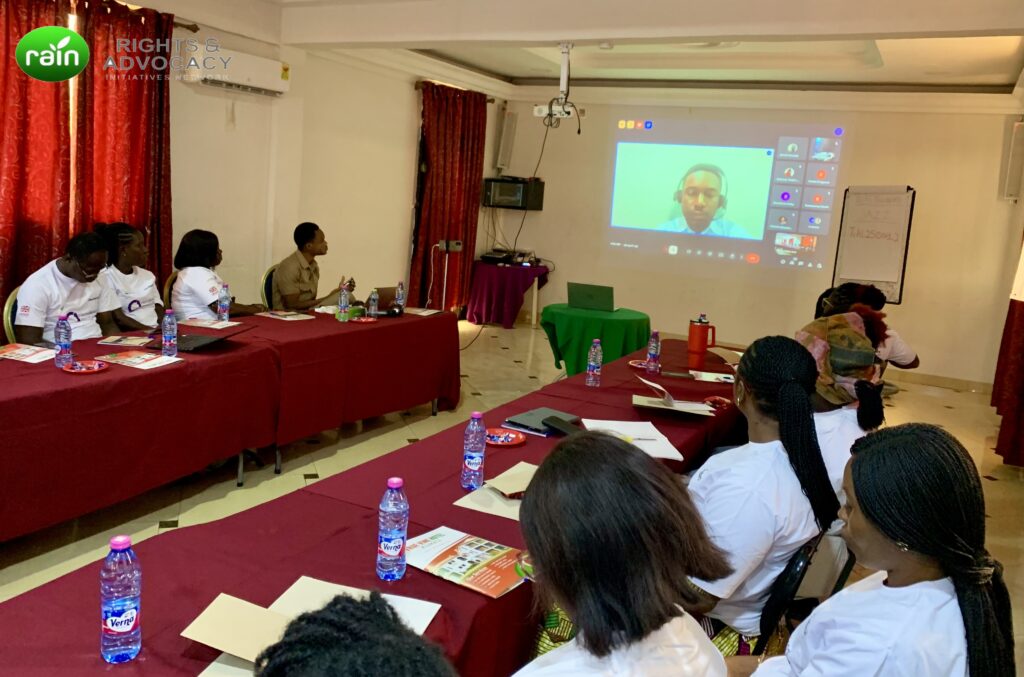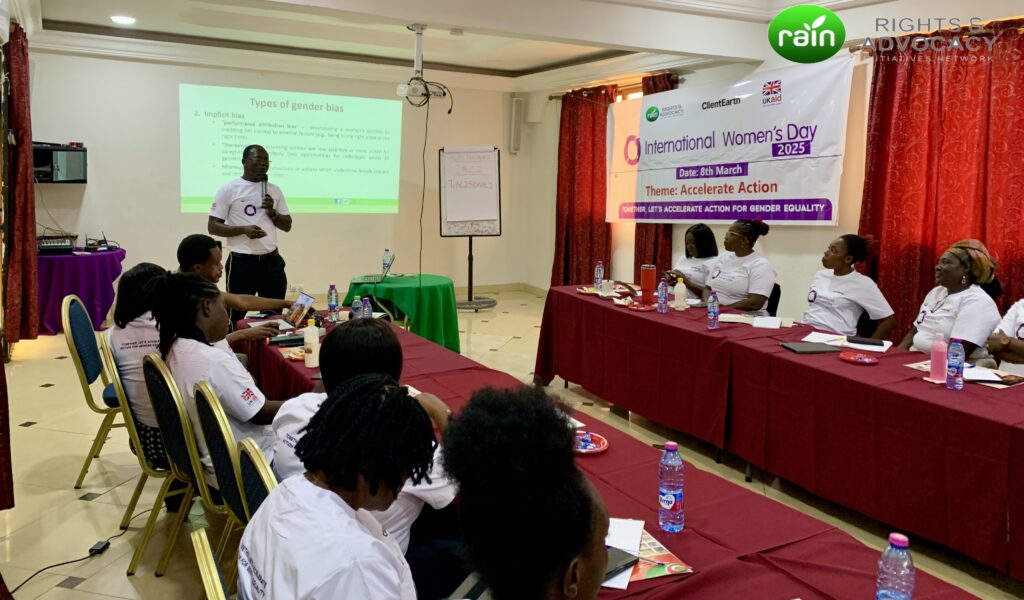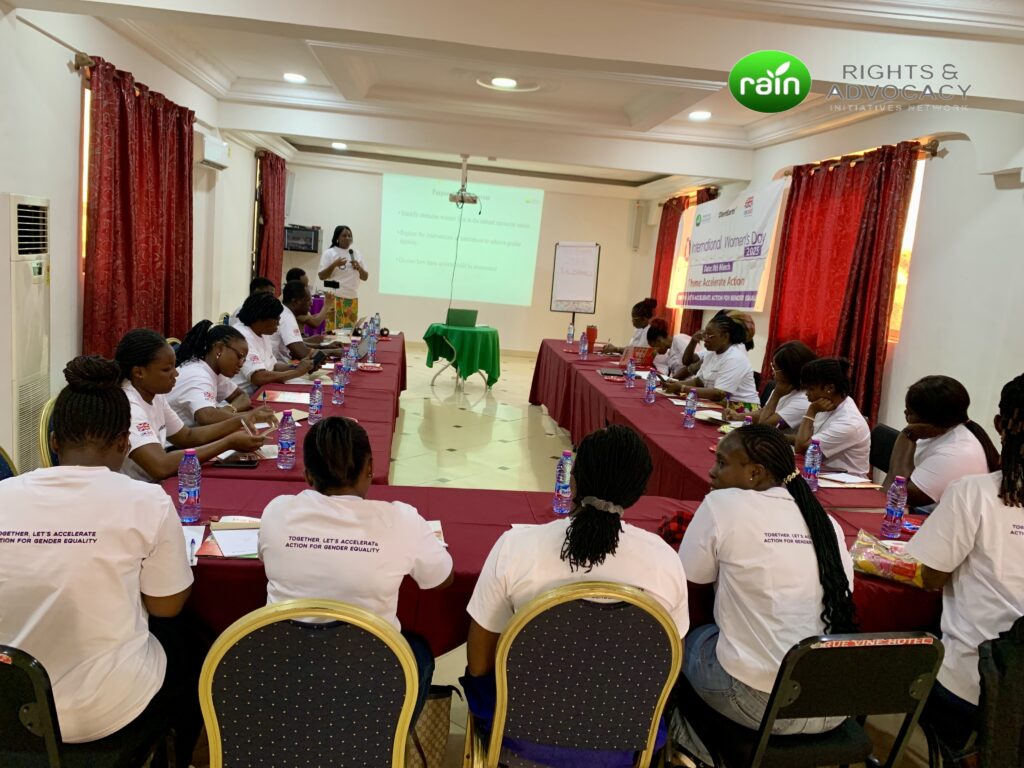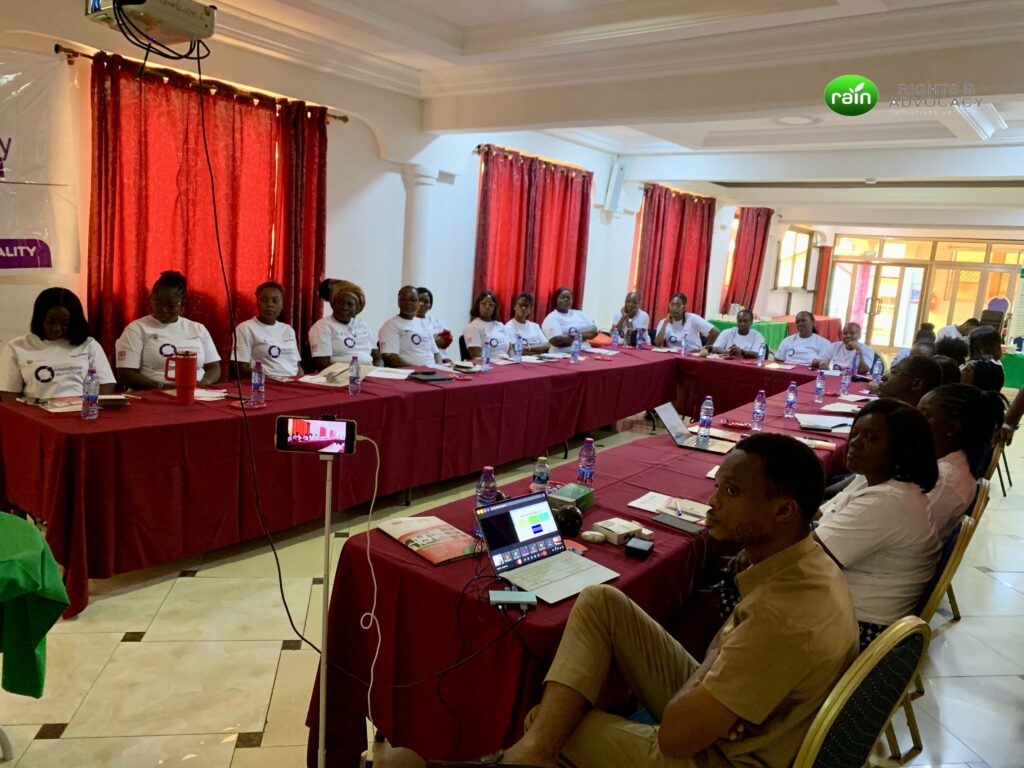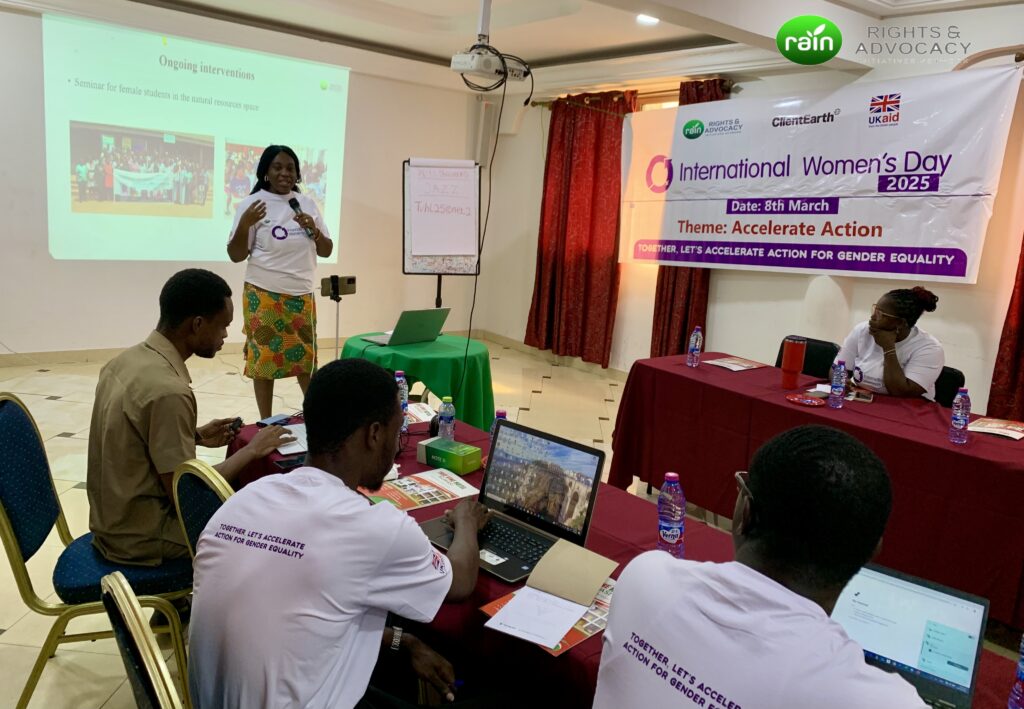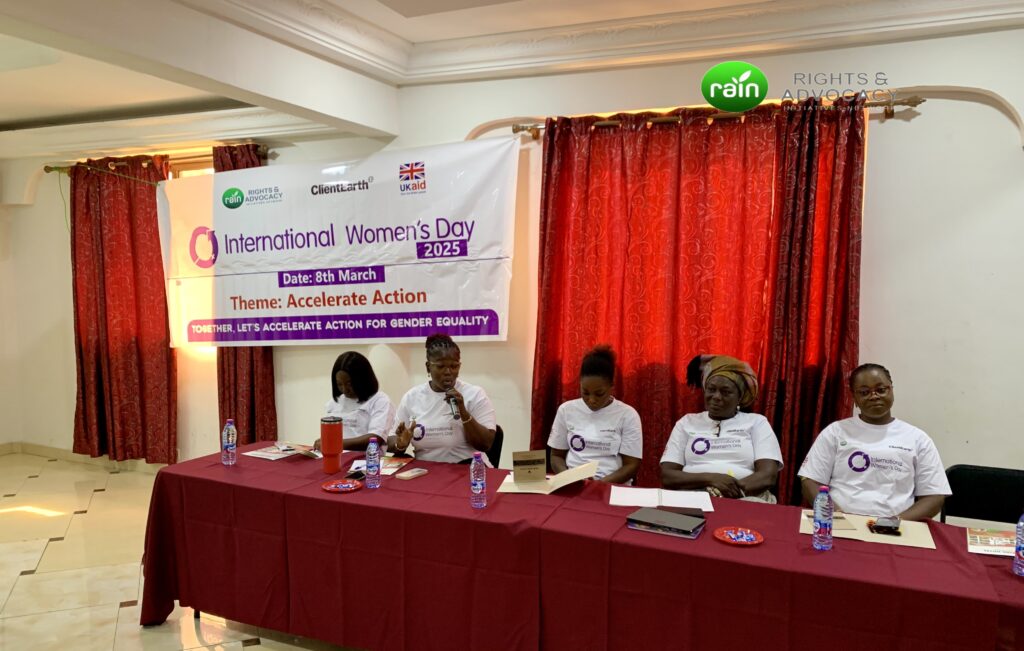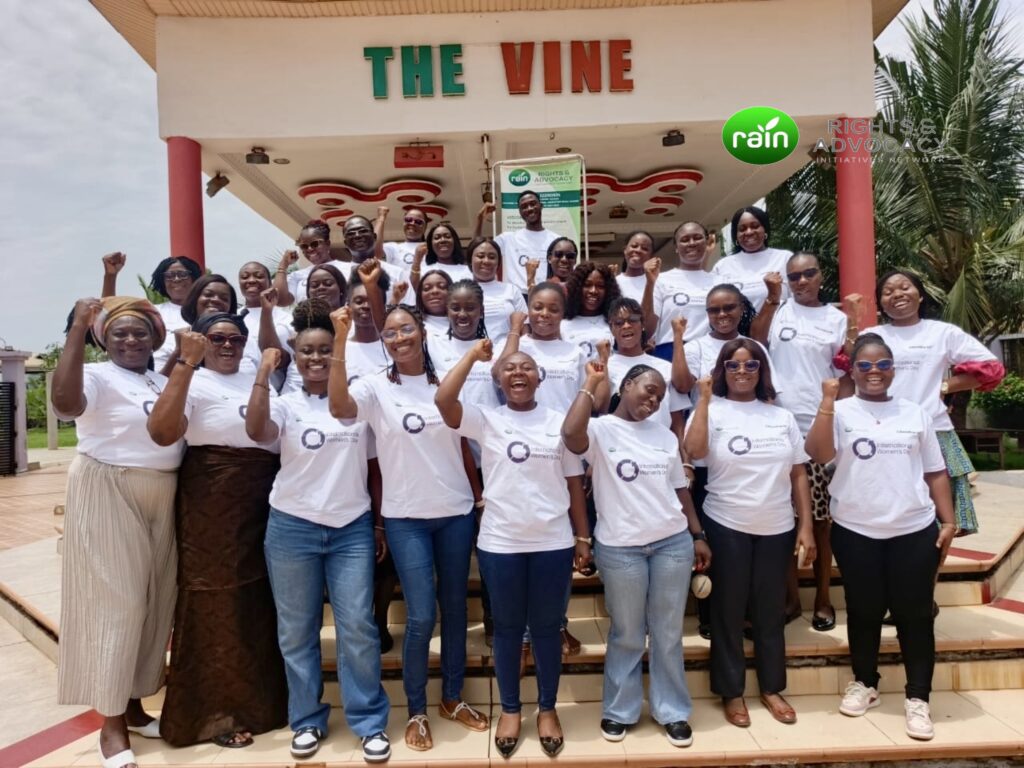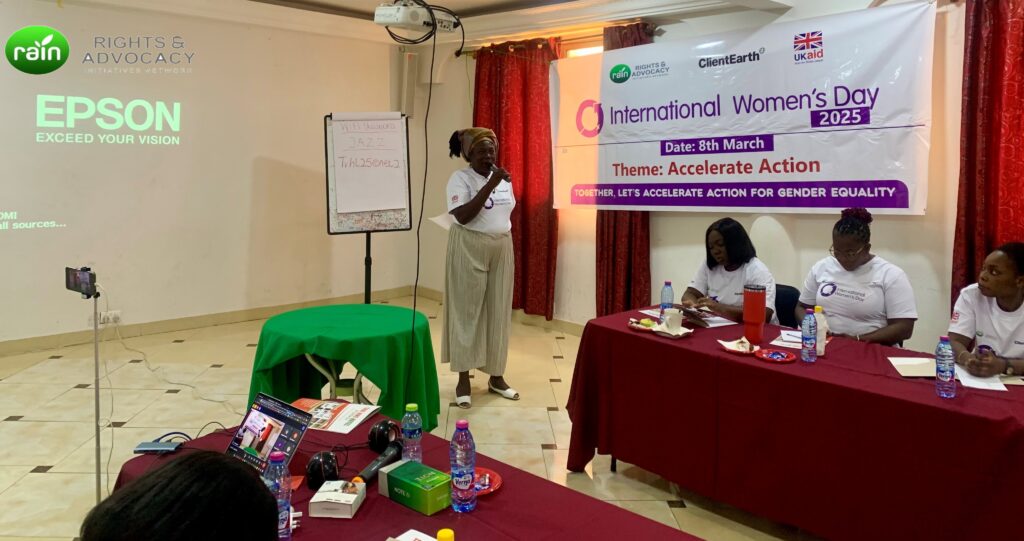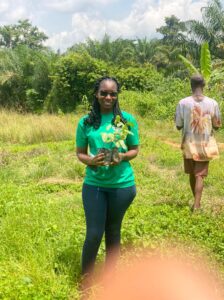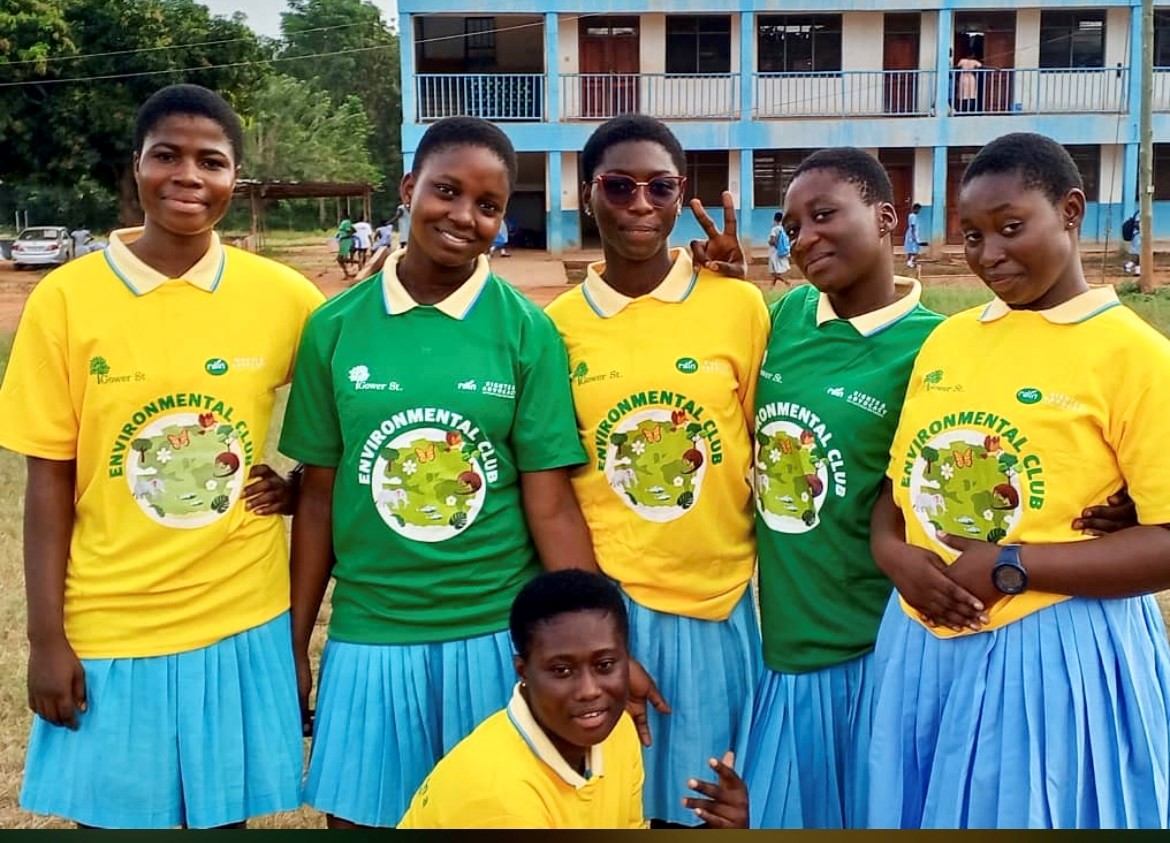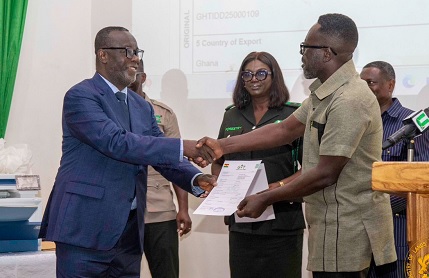A workshop was organized on March 12, 2025, to mark International Women’s Day (IWD), focusing on some selected women in the forestry sector at True Vine Hotel, Kumasi. Supported by ClientEarth and UKaid, the event aligned with the project “Using the Law to Address Illegal Forest Use and Promote Good Forest and Land Governance.” It was a hybrid session which had 32 participants joining in-person and 15 joining online. Participants included representatives from government agencies, industry, media, academia and research, NGOs, and private institutions.
Mrs. Doreen Asumang-Yeboah (RAIN’s director) emphasized the need to address challenges faced by women in the natural resources sector and promote gender equality. Participants discussed challenges faced at the workplace such as women being excluded from field assignments and decision-making roles.
💡 Key Highlights from the Workshop:
✅ Gender equality at the workplace: Mr. Albert Agyapong, Esq., of the Taylor Crabbe Initiative (TCi) delivered an insightful presentation on workplace gender equality, shedding light on labor laws, affirmative action policies, and strategies to increase female representation at the workplace. He outlined some initiatives his organization is undertaking to promote gender quality which included increasing its female workforce from 30% to over 60%. He emphasized that while competence must remain the primary hiring criterion, organizations must actively address gender imbalances through intentional policies.
✅ Overcoming gender biases at the workplace: Dr. Lawrence Kwabena Brobbey of KNUST led an eye-opening session on gender bias, helping participants understand how stereotypes shape workplace dynamics. He broke down the concept into explicit bias (e.g., unequal pay and exclusion from leadership) and implicit bias (e.g., maternal bias, where women are seen as less committed after having children, and performance attribution bias, where men’s successes are credited to skill while women’s are attributed to luck). Dr. Brobbey also addressed microaggressions—subtle but harmful behaviors that undermine women’s contributions. He gave examples such as dismissing women’s ideas, interrupting them in meetings, or assigning them stereotypical “supportive” tasks instead of leadership roles.
✅ Madam Aminata Ibrahim of the Empowerment Centre for Women and Children(ECWC) inspired participants by sharing initiatives her organization is implementing to empower women and children such as advocating for women’s rights, supporting children to go to school and providing alternative livelihoods, and financial independence in the Asante Akim South district of the Ashanti Region. She stressed the importance of creating safe and supportive environments where women can thrive.
✨ A Call to Action: As the workshop came to a close, participants made a collective commitment to applying the insights gained. They pledged to:
🔹 Advocate for gender-inclusive policies in their organizations.
🔹 Mentor and uplift women in forestry and natural resource management.
🔹 Speak out against discrimination and challenge workplace biases.
🔹 Foster a culture of equality, where opportunities are based on skills, not gender.
💜 Together, lets accelerate action for gender equality!
